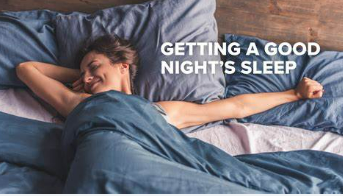Sleep has an important role in our everyday functioning assisting us to engage in day to day
tasks and operate. Sleep problems can impair our day-to-day functioning and overtime if
persistent can impair brain neuroplasticity and stress immune pathways, hence contributing to
mental health problems. It is not uncommon for people to be struggling with sleep alongside
mental health difficulties or during difficult periods in life. When experiencing sleep regression, it can be a struggle to find a solution, we hope this article helps.
Sleep treatment
Treatment guidelines for insomnia recommend cognitive behavioural therapy
and pharmacotherapy. However, this might not improve all areas of sleep affected or
be accessible to everyone. Therefore, below are some tips for helping with your insomnia.
1. Exercise
It is well documented that exercise enhances sleep. Mind-body exercise such as yoga and vigorous strength exercise are significantly helpful. Resistance/ strength training such as weight sessions in the gym or high intensity workouts can be beneficial. Also, slow movements or body positioning, when combined with breathing and relaxation, is mind-body exercise. Yoga and Pilates are examples of this.
Studies believe that one of the reasons exercises have enhanced benefits, is its effect on our skin temperature. Thermoregulation is impaired with insomnia. Acute exercise also increases the levels of hormones which are involved in sleep regulation. Additionally aerobic, resistance, and meditative movement help to decrease psycho-physiological arousal by reducing anxiety and depression.
2. Mindfulness
Complementary and alternative medicines (CAM) are often recommended for insomnia, including commonly known mindfulness meditation. We would advise that you begin slow with any meditation or mindfulness exercises, it is a skill that requires practice and patience. Another, slightly less renowned solution is traditional Chinese medicine (TCM), Tai Chi, acupuncture, and acupressure. This method of treatment is particularly common in Asia. Mindfulness has gained the most success alongside other methods of treatment at present. It not only increased sleep time but also improves sleep quality.
3. Concept of sleep hygiene
Sleep hygiene involves a set of behaviour and environmental factors and modifications which will improve sleep quality. Reducing stressors might seem like an obvious solution but it is often overlooked. We often create unrealistic expectations for our sleep quality and duration which can stress us out especially when trying to sleep.
Examples of poor health hygiene can be seen in the table below.
| Naps during day at least two times each week | Unsettled bedtime or wake-up times. |
| Frequent periods (more than two times per week) of extended amounts of time spent in bed. | Routine use of caffeine, alcohol, or tobacco before bed. |
| Performing high-intensity exercise right before bed. | Engaging in exciting or emotionally upsetting activities too close to bedtime. |
| Frequent use of the bed for non-sleep-related activities (television watching, reading, studying, snacking etc) | Sleeping on an uncomfortable bed (poor mattress, inadequate blankets, etc). |
| Allowing the bedroom to be too bright, too stuffy, too cluttered, too hot, too cold. Are not conductive to sleep. | Performing activities demanding high levels of concentration shortly before bed. |
4. Sleep diary
Starting a sleep diary can help you keep note of behaviour that may be helping and
troubling your sleep such as diet, activities, lighting etc. Sleep routine also helps such
as, keeping a fixed wake time in the morning, only using the room you plan to sleep
in for sleeping not work etc.
5. Diet
Diet has also been found to be closely linked with sleep quality as well as mental
health. Increased intake of vegetable, fruit, fish, water, and fibre were associated with
increased sleep quality while. processed meat and milk intake can impair sleep and
mental health.
Inadequate sleep hygiene: adapted according to ICSD diagnostic criteria

